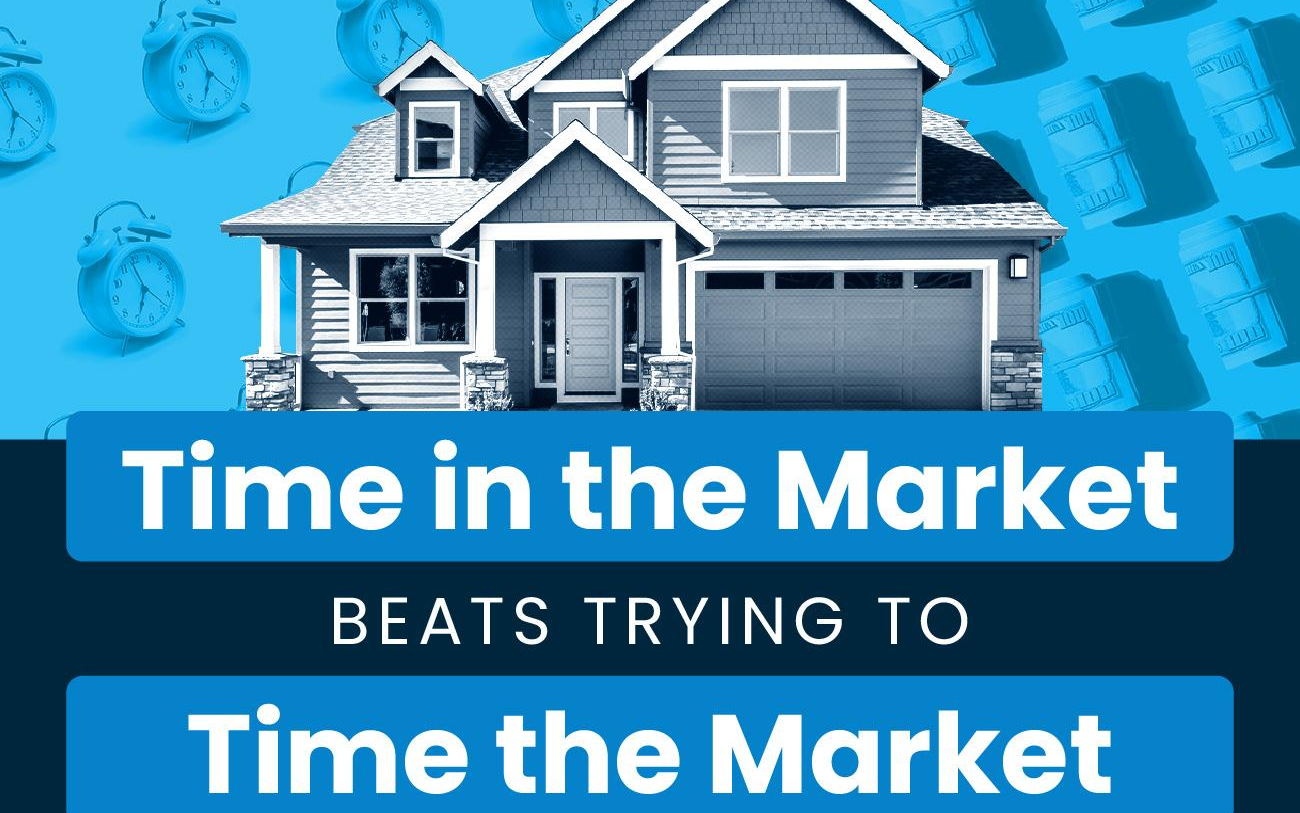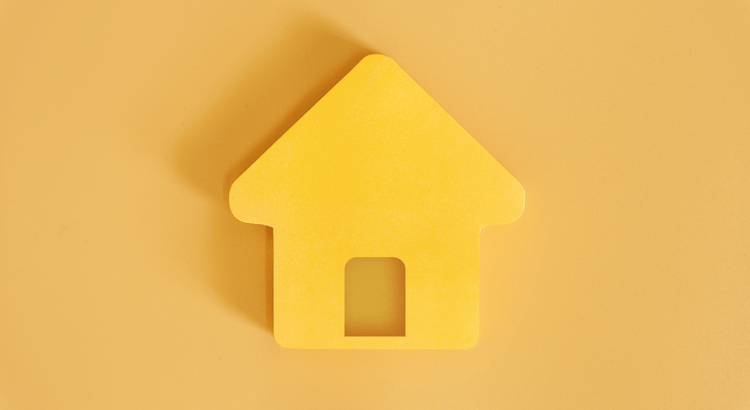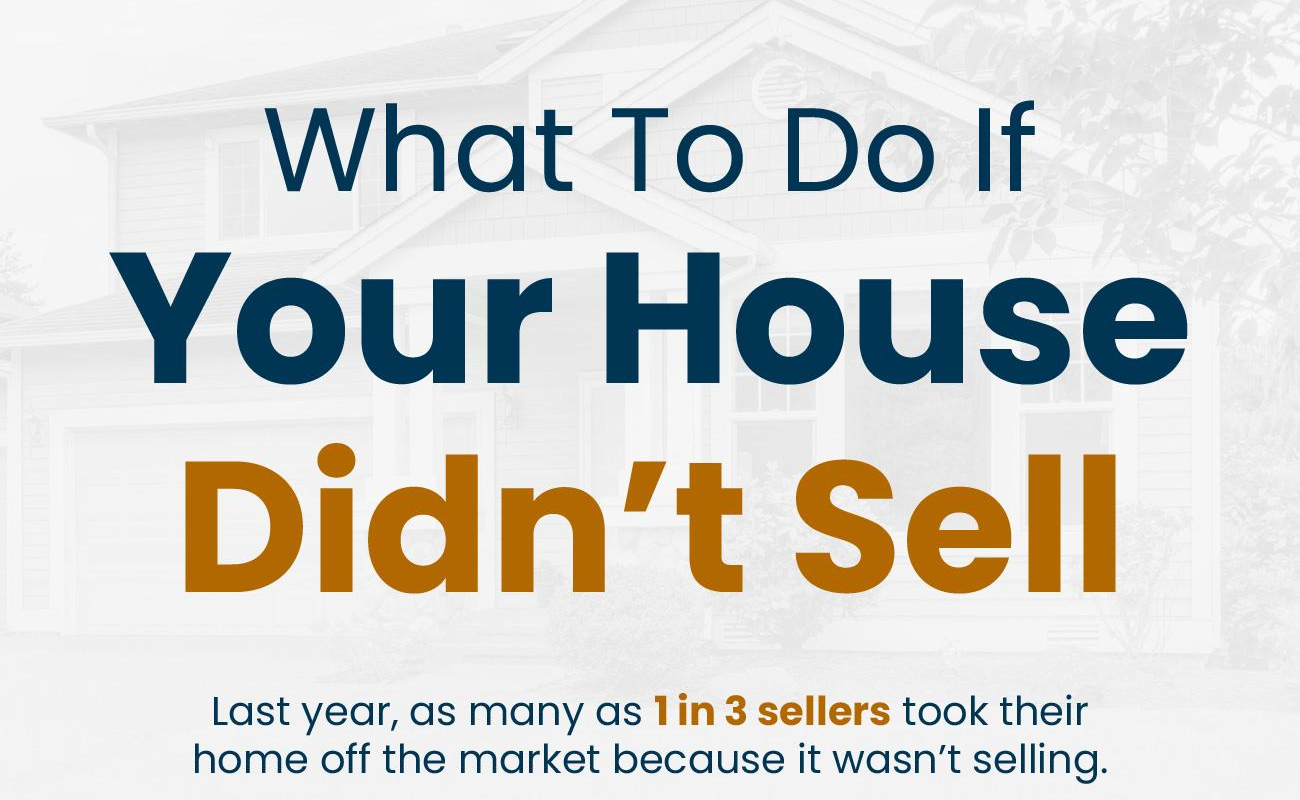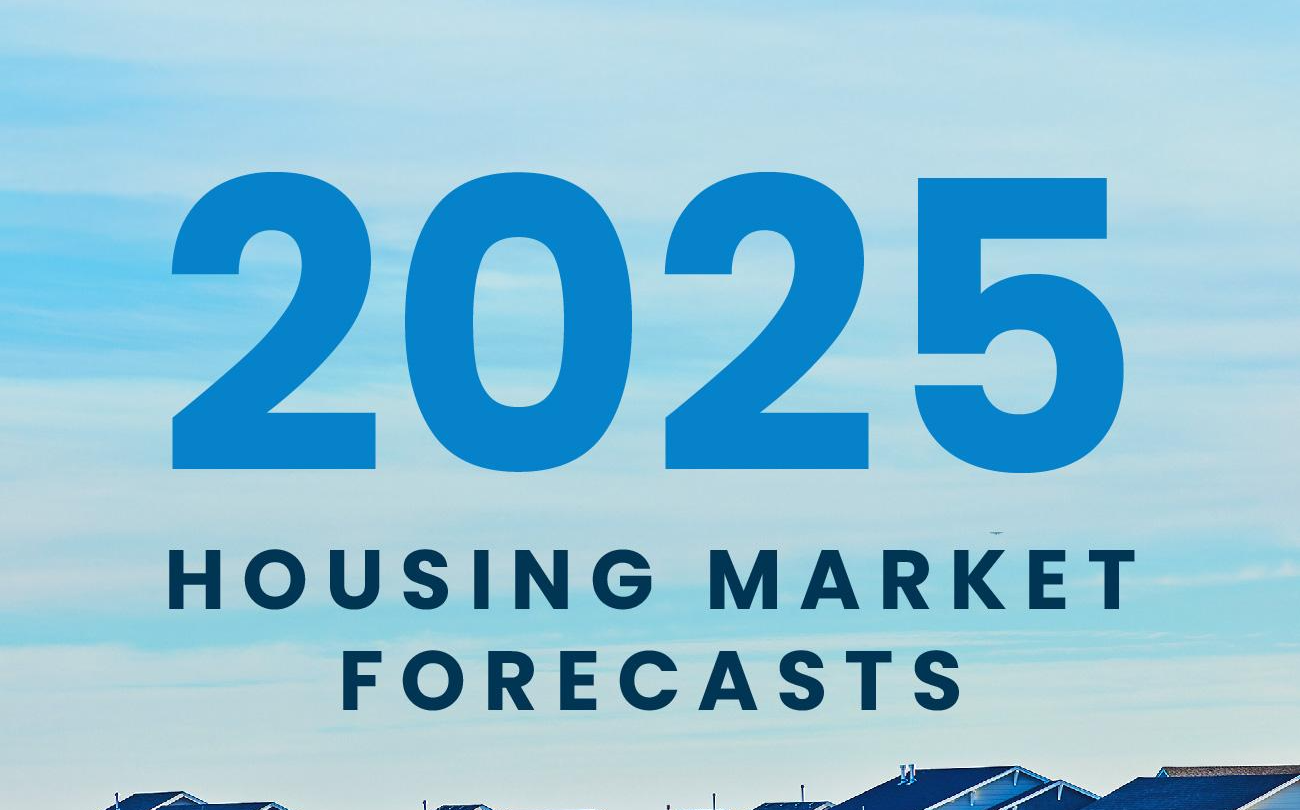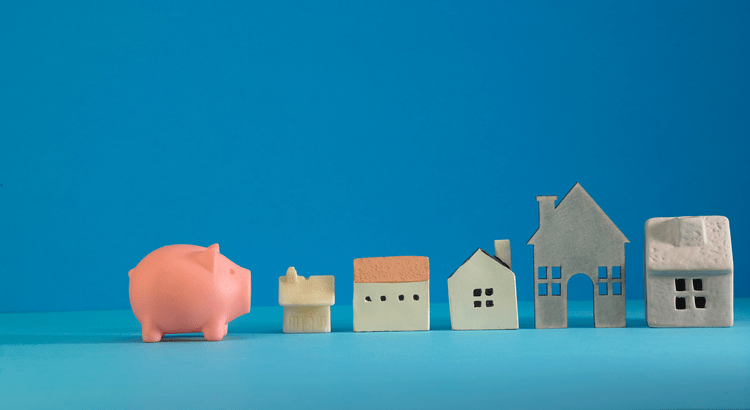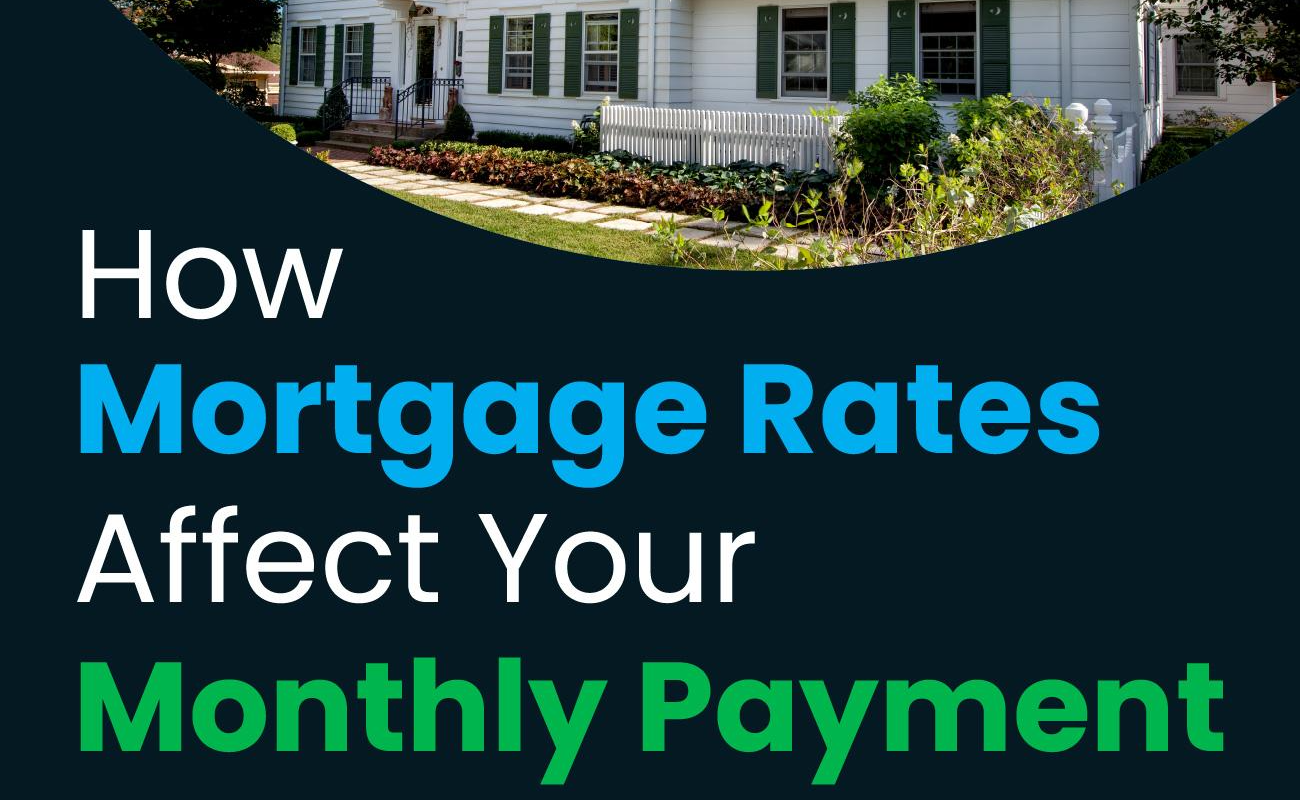
Team Fosgate
Trusted News From The Experts
The Perks of Buying a Fixer-Upper
Buying a fixer-upper can be a smart move for homeownership in today's market due to lower upfront costs, less buyer competition, and the potential to quickly build equity. These homes require renovations ranging from cosmetic to structural. Before committing, consider your renovation gameplan, prioritize repairs, evaluate location, get a home inspection, budget for unexpected costs, and explore financing options. This approach can turn an imperfect house into your perfect home.
The 3 Biggest Mistakes Sellers Are Making Right Now
Sellers are currently making three critical errors: overpricing their homes, neglecting necessary repairs, and being inflexible in negotiations. Overpricing deters cautious buyers, leading to price reductions. Skipping repairs can signal larger issues to buyers, lowering offers. Refusing to negotiate can lose sales due to the competitive market. An expert real estate agent can prevent these pitfalls by providing market insights, advising on repairs, and facilitating negotiations, making not using an agent the biggest mistake of all.
Buyer Bright Spot: There Are More Homes on the Market
Home inventory has increased significantly, with existing home listings up by 22% and further growth expected. One in three homes on the market is newly built, often at more affordable prices. This surge in available homes, both existing and new, provides buyers with more options, enhancing the likelihood of finding the right home within budget.
The Real Benefits of Buying a Home This Year
Owning a home is a key step in building long-term wealth, contrasting sharply with the escalating costs of renting. Homeownership allows you to convert monthly payments into equity, enhancing your net worth as property values rise. While renting may seem less daunting initially, it typically involves increasing expenses without financial return. If feasible, buying a home not only provides stability but also contributes to your financial growth, making it a wise investment for your future.
Time in the Market Beats Trying To Time the Market
Are you torn between whether to buy a home now or wait? Consider this. Forecasts show prices will climb for at least the next 5 years. If you wait, the price of a home will be higher later on. But, if you buy a $400K now, you could gain roughly $83K in equity as prices rise. If you're able to buy now, this equity is one reason why it'll be worth it in the long run. Let’s connect if you're ready to talk through ways we can make it happen.
The Secret To Selling? Using an Agent To Get Your House Noticed
Marketing is crucial in selling your home. Working with a skilled real estate agent who uses effective marketing strategies can make a significant difference. Agents leverage tools like the MLS for visibility, yard signs for local interest, open houses to spark competition, online presence through websites and social media, virtual tours, and targeted email campaigns. These methods enhance your home’s exposure, attracting serious buyers and potentially speeding up the sale process. Choose an agent who goes beyond basic listings to actively promote your property.
Two Resources That Can Help You Buy a Home Right Now
Despite financial hurdles, achieving homeownership is still possible with the right assistance. Here are two resources that can help:
1 FHA Loans: Ideal for those with lower credit scores or minimal down payment savings, FHA loans require as little as 3.5% down and are flexible with credit requirements.
2 Homeownership Assistance Programs: There are over 2,000 programs in the U.S., many offering significant down payment assistance, with an average benefit of $17,000. Some programs can even be combined to further boost your buying power.
Connecting with a knowledgeable lender and real estate agent can help you navigate these options and bring you closer to owning your first home.
How Home Equity Can Help Fuel Your Retirement
With home values increasing by nearly 60% over the past five years, many homeowners have seen significant equity gains. If you're approaching retirement, accessing this equity by downsizing could be a strategic move. Selling your home can free up funds to enhance your retirement lifestyle, reduce living costs, and increase financial flexibility. Downsizing not only lowers monthly expenses but also simplifies upkeep, allowing you to focus on enjoying retirement. Consider consulting a real estate agent to explore how much equity you have and the potential benefits of downsizing.
3 Reasons To Buy a Home Before Spring
Buying a home before spring offers advantages: less competition means fewer bidding wars; homes linger longer on the market, increasing your negotiating power; and prices are typically lower, allowing you to lock in savings before the spring surge. This strategic timing can make home buying smoother and more cost-effective.
What To Do If Your House Didn’t Sell
Last year, as many as 1 in 3 sellers took their home off the market because it wasn’t selling. If this happened to you too, you don’t need to be embarrassed. What you need are answers. And a local real estate agent can help with that by seeing if it was priced too high, needs some repairs, or didn’t get the right exposure. If you still want to move, let’s connect to come up with a new strategy. Together, we can get your house sold.
If Your House’s Price Is Not Compelling, It’s Not Selling
Overpricing a home can deter potential buyers, especially in a market where mortgage rates and home prices are already stretching budgets. Homes priced too high often linger on the market, leading buyers to wonder if there are underlying problems. The key to successful selling is setting a realistic price from the start. Working with a knowledgeable local real estate agent ensures your home is priced correctly based on current market conditions, attracting serious buyers and achieving a timely sale. Avoid the common pitfall of overpricing and consult with an expert to determine the best listing price.
Why More People Are Buying Multi-Generational Homes Today
The rise in multi-generational home buying, now at 17%, is driven by affordability. Families pool resources to manage rising homeownership costs, making it feasible to buy larger homes together. This arrangement also strengthens family bonds. If stretched thin financially, consider this option.
When Is the Perfect Time To Move?
Timing the housing market perfectly is unrealistic, as every market phase offers both benefits and challenges. Instead of waiting for ideal conditions, consider moving when it fits your personal and financial situation. An experienced real estate agent can help navigate market complexities, making your move feasible at any time. Focus on what you can control and move forward when you're ready.
2025 Housing Market Forecasts
Wondering what to expect when you buy or sell a home this year? Here’s what the experts say lies ahead. Mortgage rates are projected to come down slightly. Home prices are forecast to rise in most areas. And, there will be more homes available for sale. Want to know more about what this could mean for your plans this year? Let’s connect to discuss your 2025 goals.
One Homebuying Step You Don’t Want To Skip: Pre-Approval
Pre-approval from a lender is a crucial step in the homebuying process, serving as a financial "green light" that indicates how much you can borrow based on your financial history. This process involves submitting documents like W-2s, tax returns, and bank statements. Obtaining a pre-approval letter helps determine your budget and ensures you only search for homes within your price range. Additionally, being pre-approved enhances your position as a buyer, making your offers more attractive to sellers because it indicates serious intent and financial stability. If you're planning to buy a home, securing pre-approval should be a top priority to navigate the market effectively.
Roughly 11,000 Homes Will Sell Today – Will Yours Be One of Them?
Despite concerns about high rates and prices, the housing market is far from stagnant. Last year, approximately 4.15 million homes were sold, and this number is expected to rise in 2025. On a daily basis, around 11,370 homes are sold, which breaks down to about 8 homes every minute. This indicates consistent buyer activity and a solid opportunity for sellers. If you've been hesitant to list your home, consider that thousands of buyers are actively seeking new homes every day. With a skilled real estate agent, you can effectively reach these buyers and increase your chances of a successful sale.
The Truth About Credit Scores and Buying a Home
Many potential homebuyers overestimate the credit score required for a mortgage, believing perfect credit is necessary. However, lenders vary in their requirements, and there is no single "cutoff score." If your credit isn't ideal, you can still potentially qualify for a loan, though your options and terms might be affected. To improve your credit, focus on paying bills on time, reducing debt, and avoiding new credit applications. Consulting with a trusted lender can provide clarity on what you qualify for based on your current score.
How Much Home Equity Have You Gained? The Answer Might Surprise You
Homeownership can significantly increase your net worth due to rising home equity. For example, with average U.S. home prices rising by 57.4% in the last five years, a homeowner who bought a house for $500,000 with a $200,000 mortgage might now find they have $300,000 in equity. This increase is attributed to substantial home price growth and longer tenure in homes, with many staying put for a decade or more. This equity can be leveraged for making a down payment on a new home, funding home improvements, or even starting a business, making your home not just a place to live but a crucial financial asset.
How Mortgage Rates Affect Your Monthly Payment
Experts say rates will come down slightly in the year ahead – but some volatility is expected. So, you shouldn't try to time the market. Instead, it's better to focus on how even a small change impacts your future mortgage payment. As rates come down, even a little bit, your monthly payment on your next home will too. Want to see what this looks like at a different price point? Let’s connect.
What To Save for When Buying a Home
Planning your budget for a home purchase involves considering several costs beyond the house price. Key expenses include the down payment, which can be as low as 3.5% depending on the loan type, and closing costs, which range from 2% to 5% of the loan amount. These costs cover fees for appraisals, title insurance, and loan origination. Additionally, an earnest money deposit, typically 1%-2% of the home price, shows commitment and applies towards initial purchase expenses. Understanding these costs with the help of a trusted lender and real estate agent can simplify the buying process and help you manage your finances effectively.





